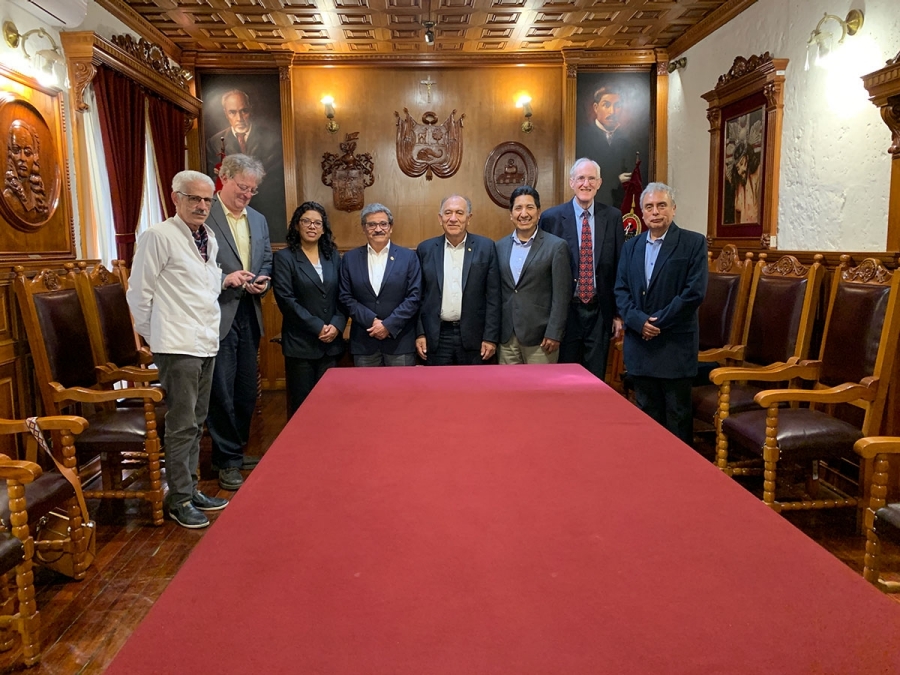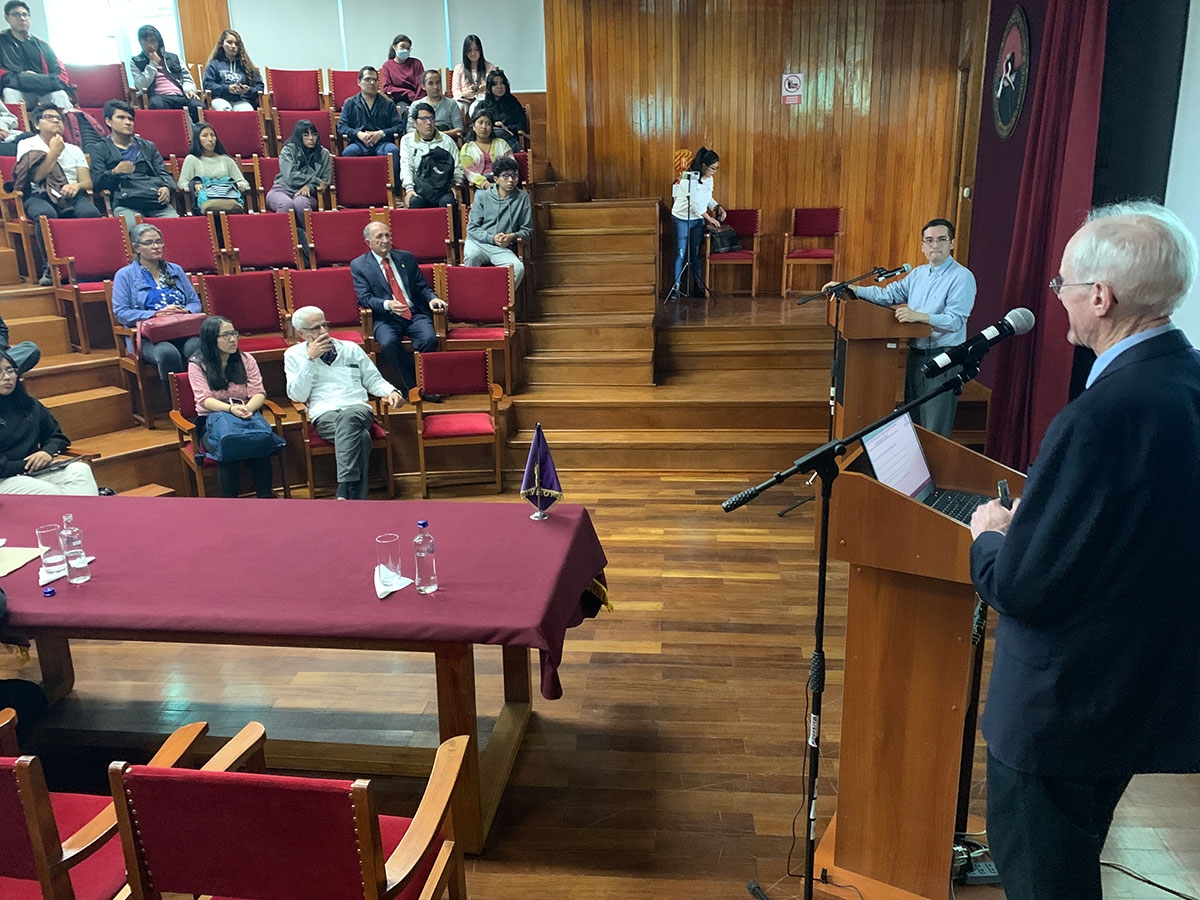
Since its establishment in 2021 within the Institute for Resilient Environmental and Energy Systems (IREES), the Latin America Sustainability Initiative (LASI) has helped OU to build a strategic network of transdisciplinary research and education collaborations with over a dozen universities, government agencies, and industries across Latin America. Established through institutional MOUs, these partnerships enable OU researchers to build multidisciplinary research teams with experts from Latin America, to co-develop and lead proposals, for U.S. and international funding agencies; leveraging our demonstrated experience of multiyear bilateral collaborations. These collaborations have also begun to attract a fresh wave of aspiring early career sustainability scientists to OU ‘s graduate programs, and opening visiting scholar positions.
Federico Flores-Arce, a recent graduate from the Universidad Nacional de San Agustin (UNSA) School of Medicine, located in Arequipa, Peru, was admitted to the OU Stephenson School of Biomedical Engineering Ph.D. program beginning in 2025. His arrival to Norman in the midst subzero temperatures of the January 2025 polar vortex was a stark contrast to the near constant 80°F summer days in Arequipa. According to Federico, however, his climate shock was "not too bad” as he put it, as it was an incentive to maintain focus on the academic challenges of the first semester at OU. Federico’s admission to OU was celebrated by the leadership and his mentor at UNSA in a recent on-line article. UNSA's President Dr. Hugo Flores; and Vice President for Research, Dr. Henry Polanco, strongly supported his application as a representative of their efforts to internationalize their university’s research enterprise. Federico, first worked with OU faculty Roger Harrison, School of Sustainable Chemical, Biological and Materials Engineering (SCMBE), as part of the UNSA-OU collaborative Global Change and Human Health (GCHH) Institute managed through IREES. Dr. Jorge Ballon, Dean of UNSA's School of Medicine and former mentor, prized Federico's dedication to research and participation in the GCHH project titled: "Photothermal Therapy Using Carbon Nanotubes for the Treatment of Cancer" led by Prof. Harrison.

Federico joins other Peruvian early career scientists recruited to OU through LASI, including, Eymi Layza-Escobar who came with high recommendations from another OU partner, the Universidad Nacional de Trujillo (UNT), located in the northern region of Peru. Eymi is studying under the guidance of Steven Crossley, at OU's SCMBE Ph.D. program. Also, from UNSA came earlier to OU Luis Cueto-Aparicio, currently a Ph.D. student in OU's School of Biological Sciences at the Dodge Family College of Arts and Sciences.
LASI also attracted numerous visiting and postdoctoral scholars to enrich OU's research initiatives on the convergence of complex environmental, human health, and societal challenges across the Western Hemisphere. These include, Dr. Antonio Florentino, a year-long visiting scholar from the Center for Nuclear Energy in Agriculture (CENA), a research center in Brazil associated to the University of Sao Paulo's prestigious School of Agriculture ESALQ in Piracicaba, Sao Paulo. From Colombia and Peru came two visiting scholars in OU’s multi-institutional PERU-Hub project, a leading research translation collaboration in the Amazon region of San Martin, Peru. Also, from the PERU-Hub project, a group of three scholars visited from the Universidad Nacional Agraria La Molina (UNALM) in Lima. Four researchers from UNSA-OU’s GCHH Institute; and one faculty with eight students from the Universidad Nacional del Altiplano, Puno (UNAP), partners in a US DoS supported project on improving conditions of life in the severe climate conditions at Puno's 12,000 fasl., high altitude region. This brief summary demonstrates the dynamism of this collaboration network striving to grow, as it soon launches a new group of funded projects, tackling grand challenges in Latin America's arid coast, the high Andes, and the Amazon.